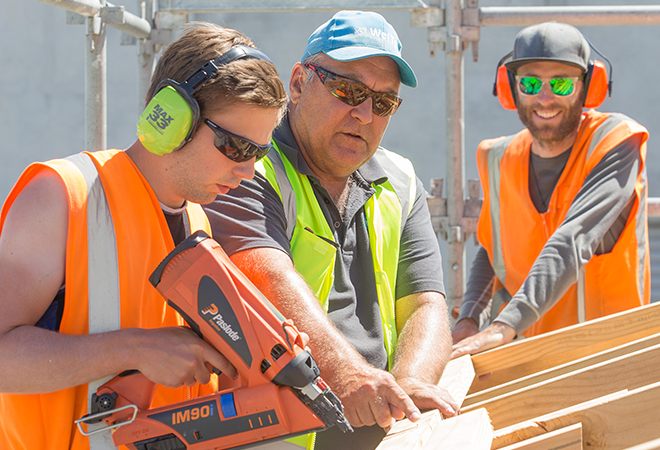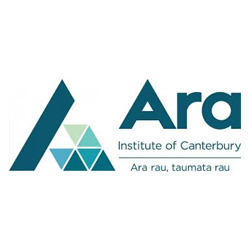
The Effectiveness of Peer Learning in a Vocational Educational Setting
Status
Completed: 4 December 2012
Project Details
A project completed in 2012, undertaken by Christchurch Polytechnic Institute of Technology, to investigate peer learning processes by students across four pre-trade programmes (Carpentry, Painting and Decoration, Electrical, and Welding) at Christchurch Polytechnic Institute of Technology (CPIT).
Aims:
The main aims of the project were to:
- create an awareness of peer learning amongst students and educators
- recommend pre-requisites for peer learning
- provide recommendations for favourable conditions in which peer learning can be effective
- provide teaching and learning strategies for peer learning
- improve teaching and learning in a classroom environment.
Methodology:
The project used a mixed method approach involving:
- a review of the literature
- collection of preintervention data, in the form of video footage of practical/classroom learning activities
- workshops which were conducted to help students improve peer learning strategies
- collection of post-intervention data/video
- comparison of the pre- and post- intervention data to find out whether the peer learning workshops were effective in improving students peer learning practice.
Team

Flip Leijten
Project Leader
Christchurch Polytechnic Institute of Technology (now Ara institute of Canterbury)
Selena Chan
Christchurch Polytechnic Institute of Technology (now Ara Institute of Canterbury)Status
Funding
$10,000.00 (excl GST)
Key Findings
The key findings from the project included:
- Examination of recordings from post-intervention group discussions indicated an increase in feedback quality.
- Data analysis of recordings illustrated improved richness of interactions in the post-intervention groups.
- Examination of peer learning interactions indicate most groups (post-intervention) used effective peer feedback strategies, in turn, leading to an acceleration in students’ skill acquisition.
- The recordings provide examples of a reconfiguration in motivational dialogue between students.
- The study also found that not all students fit into a peer learning environment. This is because peer learning requires the application of basic communicative, conflict management and attitudinal skills.
- The study found providing quality intervention workshops to recommend peer learning to students to be relevant and important.
- Therefore, a recommended sequence to use as a guideline for helping trades tutors to implement peer learning with their students, is provided. The guidelines are a composite of the principles presented in the literature review and the findings from this project.
Key Recommendations
The key recommendations from the project were the following guidelines which provide a list of structured strategies for teachers to introduce peer learning activities into workshop-based practical learning activities and class-room based theory learning activities:
Tutors’ role in introducing peer learning | During the first 3 weeks set aside training sessions to discuss and participate in learning activities to support the following principles: basic communicative, conflict management, and attitudinal skills; keep disagreements civil and unheated and protect minority opinion; and build mutual respect for and trust and confidence in one another.
Feedback cycle | Follow the above by providing students with a session to introduce the feedback cycle – explain and practise the process of feed-back, feed forward and feed-up. The above learning session supports the student’s ability to be aware of and use/apply feedback in future workshop and classroom learning activities.
Incorporate peer learning as an integral component of a curriculum | Incorporate peer learning as an integral component of a curriculum, by: creating a conducive learning environment; making sure the entire group experiences ‘positive interdependence’; encouraging face-to-face interaction and group processing of learning; and explaining and supporting the importance of individual and group accountability.
A research report prepared by Flip Leijten and Selena Chan.
(PDF, 875 KB, 27-pages).
- 6 December 2012